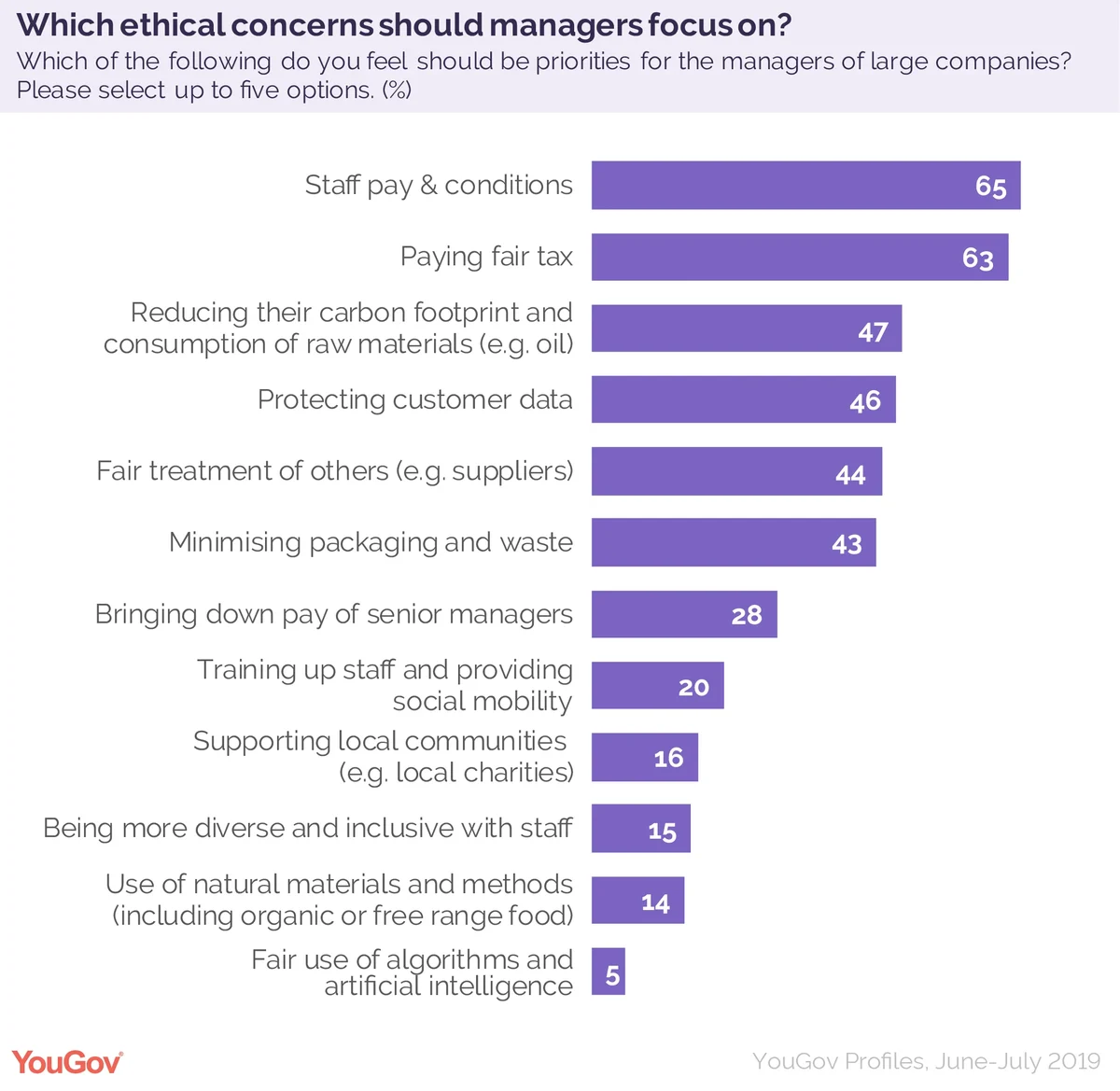Research into corporate behaviour shows that the public want businesses to pay their fair share of tax, remunerate staff properly and reduce their carbon footprint
YouGov’s new white paper, Business Ethics in Britain, asks Brits about the corporate behaviour that might concern them – or even compel them to ditch a company entirely. But beyond punishing organisations for behaving badly or rewarding them for doing well, what do the public want the people in charge to focus on?
We asked Brits about which ethical priorities the managers of large companies should focus on. The top priority is fairer pay and conditions for staff, which was chosen by almost two thirds (65%) of Brits – with nearly as many (63%) saying that the people in charge should focus on paying the company’s fair share of tax.

Working towards a lower carbon footprint is a fairly distant third place (47%) – with customer data protection close behind (46%) – and it’s not the only environmental consideration on the list: more than four in ten (43%) Brits say managers should prioritise minimising packaging and waste, while 14% say they should emphasise of natural materials and methods.
Perhaps ambitiously, over a quarter (28%) of Brits also believe the managers of large companies should work to lower the pay of senior managers.
Beyond self-regulation, many consumers believe that certain groups can influence how companies act. Four in ten (41%) say Government-appointed regulators are an important part of ensuring that businesses practice ethical behaviour, while more than a third (35%) say MPs and the government can hold them to account.
Public action such as boycotts, protests, and petitions is cited by a third (33%). Our findings show that half (51%) of consumers have switched provider because of a company’s behaviour – but they also show that more than half (55%) don’t research a company before making a purchase.








